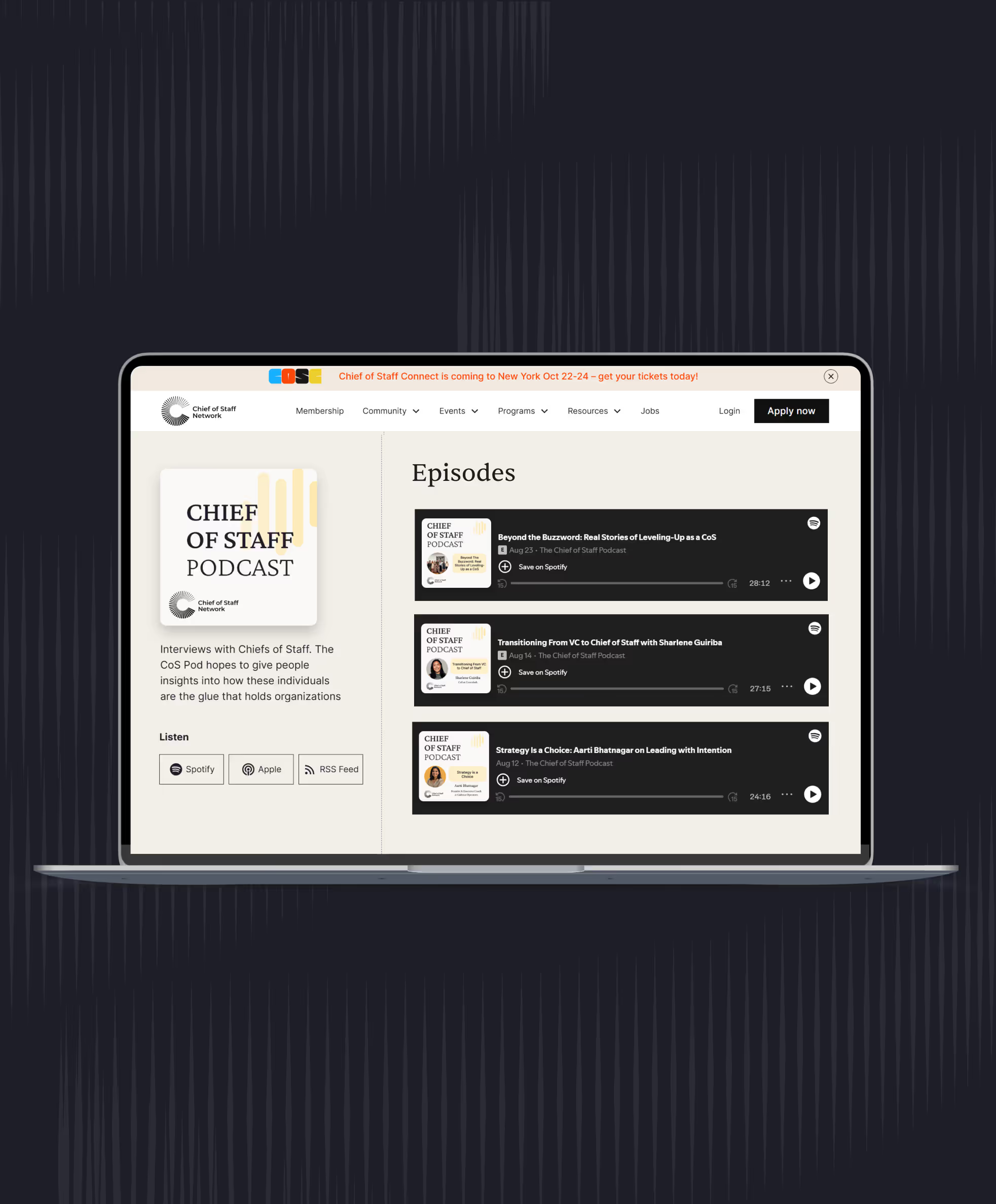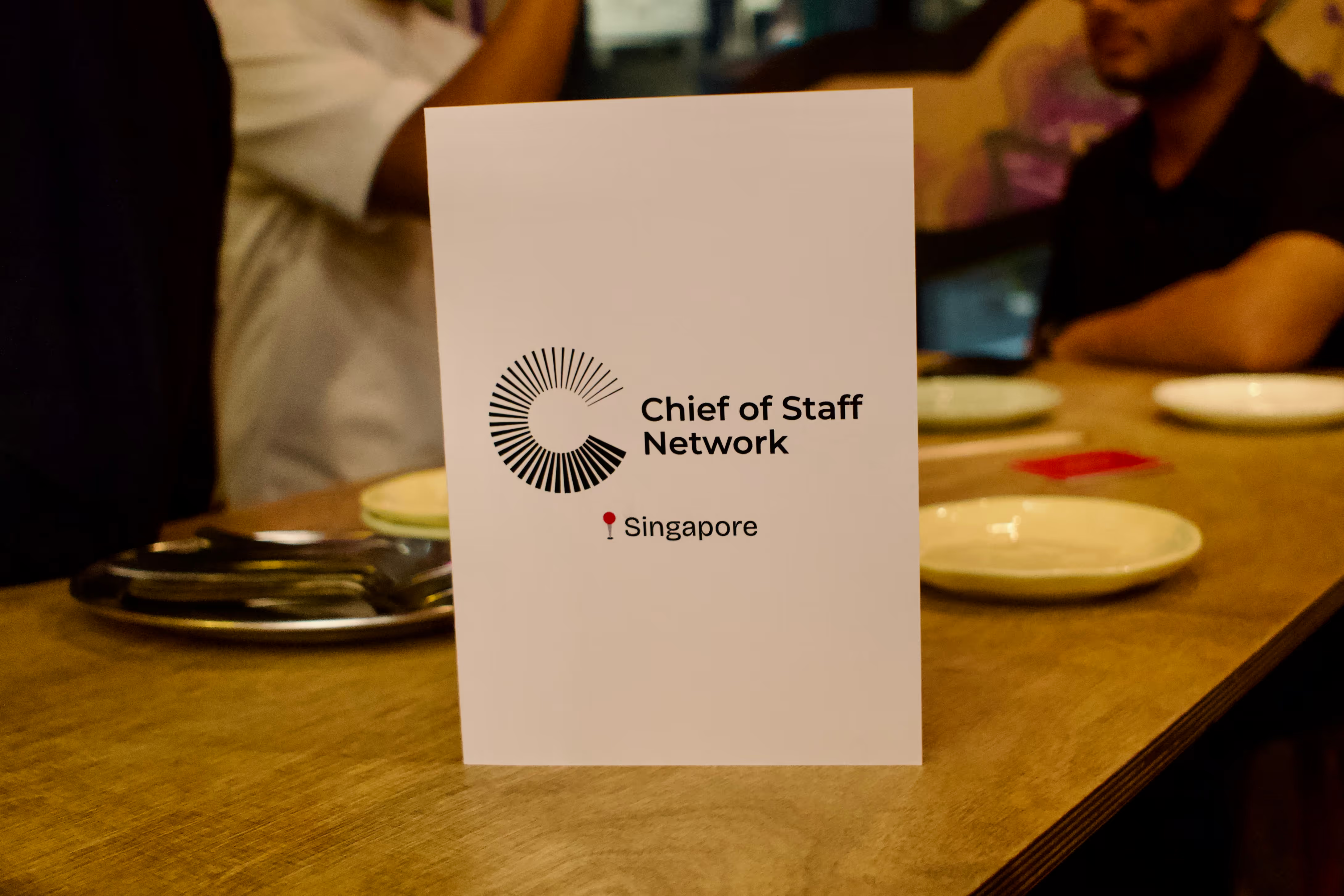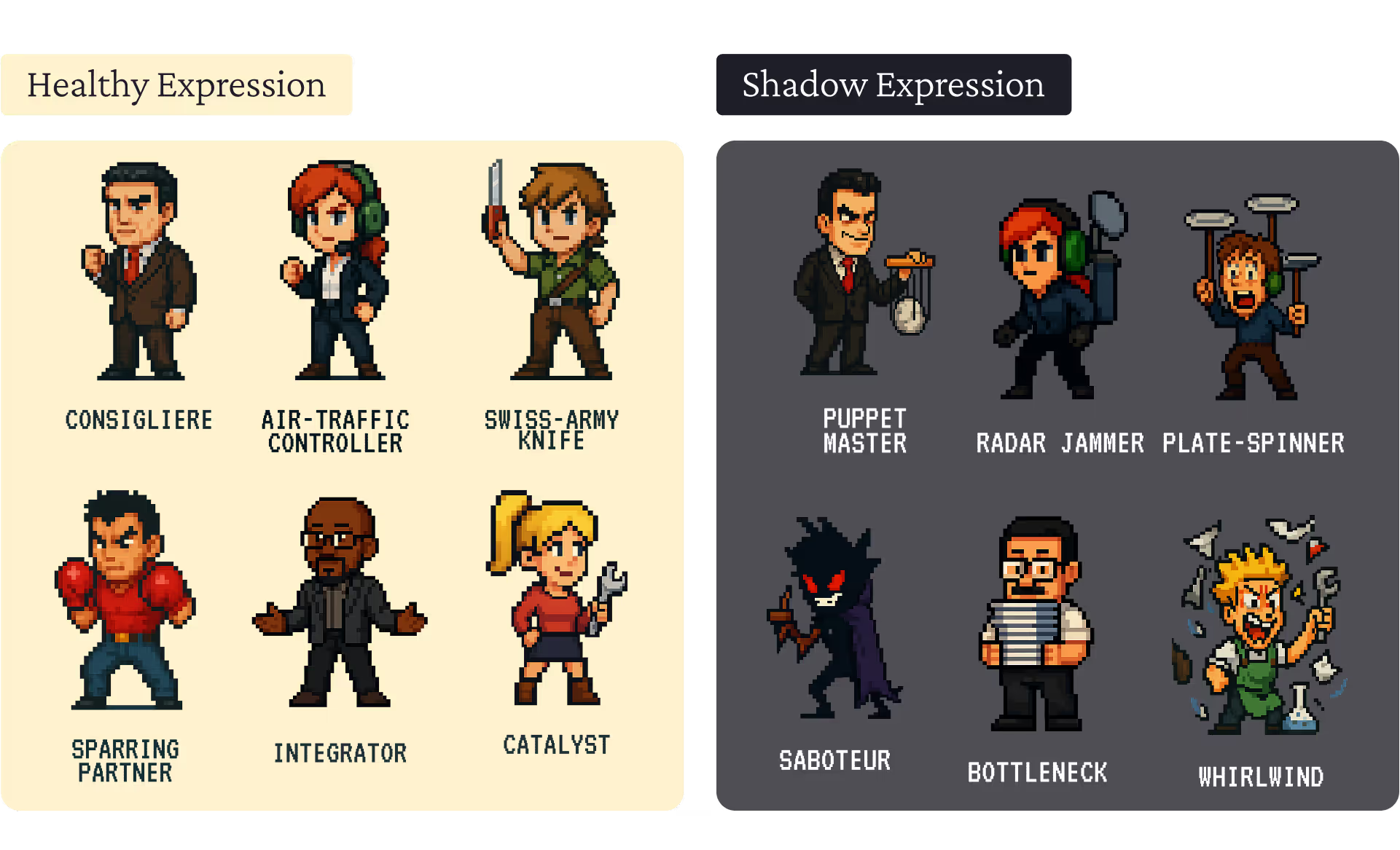In this Chief of Staff Network member spotlight, you will learn about how Simon Rodrigues is finishing up his second Chief of Staff role, what he loves about the Chief of Staff role, and how he wants to be a fractional Chief of Staff next!
How did you get into your CoS role first at Nested and now at Curio?
I started in management consulting, which was a great career bootcamp before I got the itch for tech. I was drawn to the idea of building the future rather than optimising the past. I left in search of generalist roles in tech that kept me versatile and operational, so I started out as a Business Operations Associate for Nested. As we scaled, I pitched the chief of staff role to our CEO as his superpowered Swiss army knife.
After property, media came calling. Curio had just raised their Series A and were searching for a Head of Operations. The founders are excellent – they’re charismatic, intelligent, and empathetic guys, and we got on quickly. Going earlier stage meant I could get a better test of whether I wanted to become a founder. When I heard the job spec, I pitched reshaping it into a chief of staff role. It would be a win-win – the founders gained the flexibility to deploy me where needed, and I broadened my remit to sate my curiosity.
What are you working on right now?
- Wrapping up my second chapter as a chief of staff! The objective for my tour of duty was to learn the ropes of being a VC-backed entrepreneur so I could decide what came after; there is always more to learn, but after 2+ years in the role, I can confidently say that I’ve completed the objective (shy of becoming a founder myself). My main focus is setting the business up for success after I leave.
- The tour of duty taught me exactly what I’m looking for – for me, that means heading to Mexico City as a solo-preneur. Tech is exploding in Latam, with venture funding having tripled last year and foreign capital rapidly flowing in. All signals point towards continued expansion, which is creating a vibrant ecosystem that requires a new level of infrastructure. I’ll be writing about the space as a freelance correspondent while consulting for early stage ventures as a fractional chief of staff. If any of this sounds compelling, subscribe to my newsletter, Technopoly, or get in touch - I’d love to hear from you!
What were some of the key learnings or breakthroughs you had while working as a CoS?
1/ Build relationships. Relationships are assets, and trust is currency. They’re both forms of intangible capital. Treat them as if you had a portfolio that require active management. Invest, diversify, and optimise. Navigate your way through the org thinking about how your actions can strengthen or erode trust. There are no shortcuts in this long game.
2/ Respected > liked. Being liked is easy – just smile, agree, and do as you’re asked. It’s the path of least resistance, which also means that it’s a slippery slope to ambivalence and ineffectiveness. Being respected is difficult. Operating with effectiveness, kindness, and independence will inevitably entail friction with someone you work with. But it’s necessary, and handling that friction separates the wheat from the chaff. As a chief of staff, it can be tempting to chase universal approval as a surrogate for success or esteem. Respect is more challenging to earn, but it is a firmer foundation for career and camaraderie.
3/ Listen. It seems too good to be true, but there really is one simple trick that can dramatically improve the quality of your career, relationships, intelligence, happiness, and charisma. Active listening is a superpower. Listen to understand, not just to respond; ask better questions to have better conversations. If you need a blue ocean strategy for your career, then remember this: listening is in high demand and low supply. You’d be surprised what people will tell you when you give them a platform.
4/ Redundancy is the highest form of competence. Many chiefs of staff love the role because they want their fingers in all of the pies. You do something well, receive recognition, and want to keep doing it. Being needed feels nice. That’s great, until you’ve been in an organisation for several years and the long list of tasks, admin, and past projects follow you around until they become death by 1,000 small cuts. Being needed is a good strategy for job security (and egotism) but a bad strategy for growth. My goal is to make myself redundant as often as possible. It frees me up to do the most interesting work. A colleague refers to this as “firing himself”. In this sense, being out of a job is actually the highest compliment.

What have been the most challenging and rewarding parts of your CoS experience?
Autonomy is the most salient aspect of the role, which brings out its greatest and worst features. Sometimes autonomy brings loneliness. The job can be thankless. There are days when I’m a floating firefighter. No one fully understands how I spend my day, and feedback is rare. I’m a fixer, a supporter, and an enabler – always a bridesmaid.
Floating in the gaps means I’ve had a crash course in entrepreneurship and leadership. Imagine having live satellite imagery of the entire business: you see everything. I’ve collected a mental database of the common challenges that startups face, and I’ve learnt loads about having empathy for all the people involved. It’s fascinating how organisational problems unfold when a team has a handful of well-intended, intelligent individuals who come together with a common goal and sometimes bump into each other. Nobody is “wrong”, but everybody feels discomfort. This is why it’s so hard to be a leader: you need to recognise these cycles as they’re happening and change yourself in order to change your team. That learning is a precious, and it makes life extremely rewarding when things go right.
In a very personal sense, the most rewarding part of the job is feeling recognised. The nature of the job often means that silence can be a high form of praise because problems have been avoided or solved. But recognition is this magical thing. The Zulu have a word, both a greeting and an ethos, based on this idea: ubuntu, “I am because you/we are”. We value human connection above all. Now that I’m leaving, a colleague gave me the highest compliment: “This business is very different than when you joined, and we wouldn’t be here without you.” Ubuntu.
What’s your professional goal in the next ~10 years?
- I’m a chief of staff because I’m terrible at choosing one thing to focus on, so I’ve always found setting long-term goals difficult. Fulfillment is my main professional KPI, but fulfillment isn’t a milestone to be achieved. I’m increasingly skeptical of the notion that achievement begets fulfillment. My goals are likely to change (and keep changing) every few years.
- I’ll consider my professional life a success if I can answer “Yes” to these questions at the end of any chapter:
1. Am I proud of what I did?
2. Did I do it with, and for, good people?
3. Did I make enough money to meet my obligations (and have a little fun)?
If you could wave a magic wand, with 3 wishes for your role, what would they be?
- Autonomy.
- Mastering a craft.
- Building a community of purpose-led movers and shakers.

What’s something that you want to learn? (professional or not!)
- Salsa dancing. My girlfriend and I just started lessons, and I’m hooked. It’s an amazing way to get into flow, and it’s highly effective for stress relief. It’s tough to shake your hips without smiling.
What’s something that you’re sneaky good at or that people wouldn’t expect about you?
- Rapping Kanye West’s “Gold Digger” without any lyrics.
What’s something that you’d like help with?
- Learning how to ask for help.
What’s the best professional advice that you’ve ever been given?
- Go for it. Human brains are naturally risk averse; we evolved to avoid threats. That means that we often inflate the value of safe options and overlook the cost of inaction. When I ask peers and colleagues about their deepest regrets, they most often choose some version of inaction or failure to launch. We repeatedly underestimate the opportunity cost of inertia. I would rather try and fail than wonder “what if?”
And.... that's a wrap! Thank you so much, Simon! You can learn more actionable tips for your role and about Chief of Staff open roles in our weekly newsletter.
PS: what would you like to learn next? Let David know at david@chiefofstaff.network!






.avif)
.avif)








